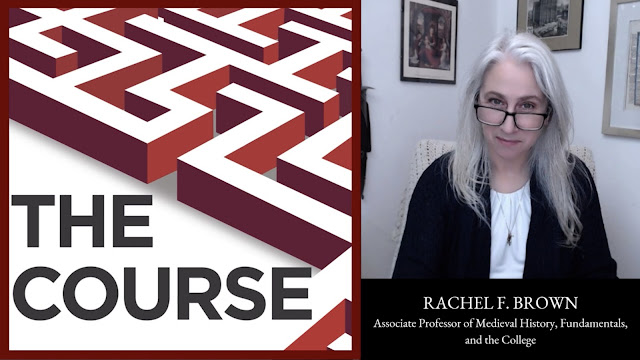A visitor from across the sea, on finding me in my cloistered office Atop her tower, a casement medieval (in fact, it is a later imitation) shadows the Fencing Bear, and all that’s evil she quells, at least in the imagination of those across her too-divided nation who grasp at slogans, dragons, and her ditty composed so men might imitate creation. Readers, she dwelleth in no earthly city. The ‘ivory tower’ is all too oft a motto condemning those who choose to stand aside who shun the ‘real world’ and stagger, blotto, on that thin drink receptions now provide. Chicago has its towers, South Bend its grotto. (Readers, reveal which campus others betters.) But, as Sylvester taught the infant Otto our camp is our republic, that of letters. Ivory and horn the gates, in Vergil’s tale through which our souls return to earthly joys. The ivory gate is false, those towers must fail. For ivory dreams deceive. So she deploys dragons which we must fight. Amid the noise of gunfire (take t...


